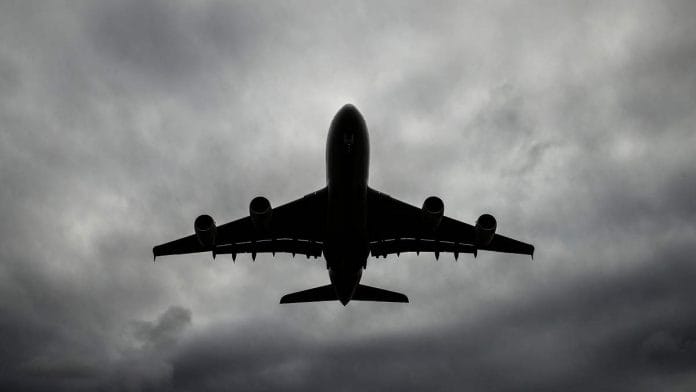The Swedish word flygskam or its German version, Flugscham, meaning “flight shame,” is one of the words of 2019. While it’s not easy to separate its effect on airlines’ business from other factors, the countries where people are most worried about climate change do appear to be seeing drops in avoidable air traffic.
In November, the number of people taking domestic flights in Germany fell 12% year-on-year, while the number of intercontinental passengers increased and intra-European travel dropped less sharply. As rail traffic keeps rising, it appears many people prefer the train when it doesn’t take considerably longer than flying and waiting at airports.
That isn’t necessarily the result of flight shame. The European Organization for the Safety of Air Navigation, also known as Eurocontrol, noted in its November report on European air traffic that the drop in German domestic flights was explained largely by a Deutsche Lufthansa AG cabin crew strike, and traffic decreases in other European countries, such as France and the U.K., were a consequence of the bankruptcy of travel operator Thomas Cook Group Plc. Domestic air travel has been falling in India too — because of an economic slowdown rather than climate change fears.
Also read: Aeroplanes aren’t selling like they used to
Eurocontrol data, however, show there’s something to the flight shame hypothesis. According to a recent Eurobarometer survey, Sweden, Denmark, Malta, Finland, Germany and the U.K. are the European countries with the highest percentage of people who believe climate change is the world’s number one problem. In Sweden and Finland, the number of flights taken within Europe has dropped between January and October; in the other nations most worried about climate, it has increased, but less markedly than in countries where people aren’t as concerned.
Of course, a scientific correlation between people’s feelings about climate change and their transportation preferences is impossible to establish on the basis of these data. In every country, people’s choices depend on a combination of geography, the state of infrastructure, holiday and work traditions and, most important, the economy.
And we’re not seeing much evidence of shame in other modes of transport. Emissions from those have increased faster than those from aviation in recent years. The biggest source is cars and trucks.
In virtuous Sweden last year, emissions from road transport actually increased, largely due to heavier truck traffic — but also because, for all the climate awareness in that country, people aren’t driving much less or switching fast enough to fuel-efficient and electric cars. The number of cars in use has been increasing in Sweden, and their average age, 9.9 years, while lower than the European Union’s 10.8 years, is higher than in some countries less worried about the climate.
Still, at least in the most climate-aware countries, people are willing to change their flying habits to cut emissions. Unfortunately that doesn’t mean they’re changing them in the most efficient ways. Less short-haul air travel will do some good: Because the emissions are the highest during takeoff and landing, it’s the shorter flights that release the most carbon into the atmosphere per mile flown. But if one chooses to drive an aging car instead, and not fill it with travel companions, flight shame is a fad rather than a useful contribution to lowering emissions.
It’s probably time for policymakers to help people get their priorities straight by adopting the old idea of personal carbon trading. If people are issued an equal amount of carbon credits at the beginning of the year, which they can spend on different kinds of travel and energy use according to a unified national price list, they soon will understand what works for them personally. The need to buy additional credits, or the ability to sell some of the allowance, should provide an incentive to work that out.
Such schemes would be intricate and not easy to administer, but at least in the Nordic countries, with their small populations and excellent internet infrastructure, they are not impossible. Environmentally motivated shame is all well and good, but economic motivation probably would prove more effective.
Also read: This is how bad 2019 was for the airline industry






